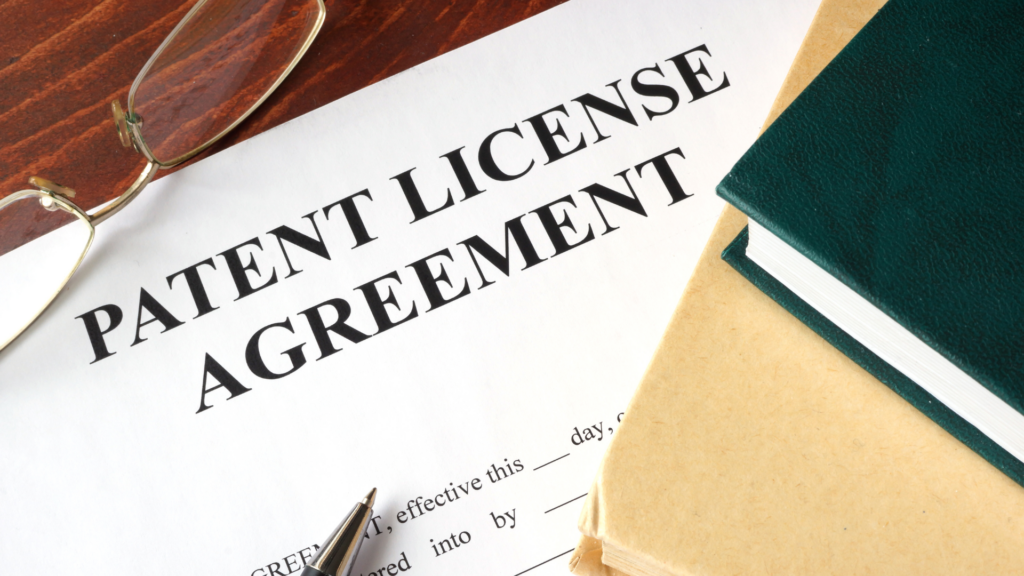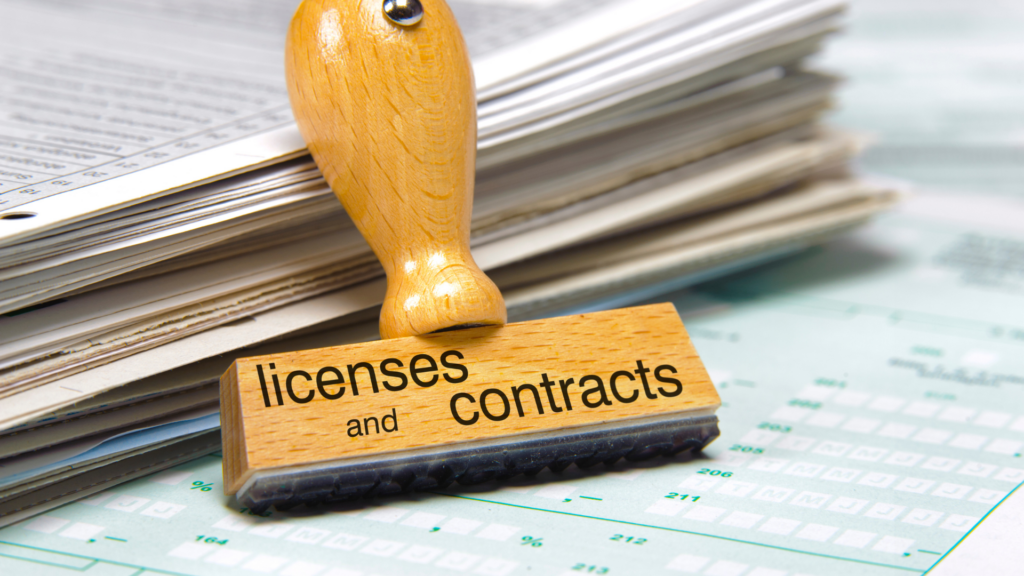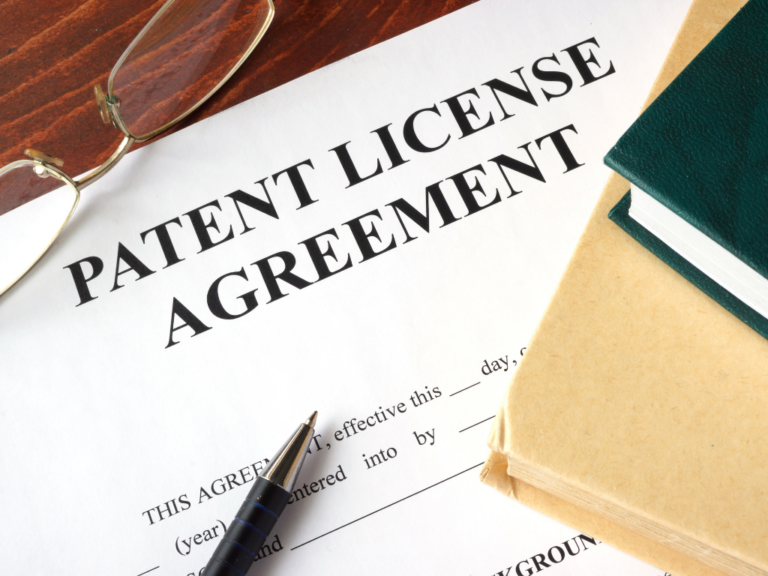Call us now:
In the current context of globalization and international economic integration, intellectual property has become an increasingly crucial factor in production, business activities, and determining the competitive capacity of enterprises in the market. As a type of property, industrial property rights can be bought, sold, and transferred in Vietnam. This article aims to provide essential guidance on licensing contracts in Vietnam.

What is a Licensing Contract?
The owner of industrial property rights has the exclusive right to use the objects of those rights within the protection period and throughout the territory of the registered country. Other organizations or individuals wishing to use these rights within the protection period must obtain permission from the owner. This permission is expressed in a written contract called a licensing contract, which transfers the right to use the objects of industrial property rights.
So, a licensing contract is a contract transferring the right to use the objects of industrial property rights. In this contract, the entity or individual holding the exclusive right allows another entity or individual to use the objects of industrial property rights.
Characteristics of Licensing Contracts in Vietnam
1/ The transferring party is the owner of the protected industrial property rights in the registered country.
2/ The object of the licensing contract is one of the objects of industrial property rights, including patents, utility solutions, industrial designs, integrated circuit layout designs, trademarks, and trade secrets.
3/ The owner only transfers the right to use, not the ownership of the industrial property rights.
4/ The licensing contract is limited to the territory of the country or territory where the industrial property rights are registered and within the protection period.
Types of Licensing Contracts in Vietnam
Licensing contracts in Vietnam can be categorized into three main types:
1/ Exclusive Licensing Contract:
- The transferring party grants exclusive use of the industrial property rights to the receiving party within a specified scope and time frame.
- The transferring party cannot transfer the rights to a third party without the permission of the receiving party.
2/ Non-exclusive Licensing Contract:
- The transferring party grants the receiving party the right to use the industrial property rights within a specified scope and time frame.
- Unlike exclusive licenses, the transferring party can simultaneously sign non-exclusive licensing contracts with other third parties.
3/ Sub-licensing Contract:
The transferring party, who is not the owner of the industrial property rights, transfers the right to use these rights through a licensing contract obtained from another party.
Key Contents of Licensing Contracts in Vietnam
Licensing contracts in Vietnam must include the following key information:
- Names and addresses of the transferring and receiving parties.
- Basis for transferring the right to use the industrial property rights.
- Object of the licensing contract: details of the transferred industrial property rights, including the type, protection certificate information, territory, and validity period.
- Type of licensing contract: exclusive, non-exclusive, or sub-licensing.
- Scope of the transferred right to use: limitations on the actions the receiving party is allowed to undertake, including the territory of use.
- Transfer period: the duration of the transferred right or license.
- Transfer price, duration, and payment method: for cases where the license is not free.
- Rights and obligations of the transferring and receiving parties.
Additional provisions that may be included in licensing contracts:
- Agreement on force majeure and dispute resolution mechanisms.
- Agreement in case of delayed payment by the receiving party.
- Penalties for contract violations.
- Conditions for unilateral termination of the contract by one party.
- Conditions for contract termination.
- Compensation for damages agreement.
- Applicable law, language (in the case of bilingual contracts), and dispute resolution authority.
Content of Licensing Contracts According to Vietnamese Law

Prohibited Contents in Licensing Contracts in Vietnam
In Vietnam, parties are not allowed to agree on unreasonable restrictions that limit the rights of the receiving party. Prohibited contents include:
- Provisions restricting the receiving party from improving the transferred industrial property object (excluding trademarks) or requiring the receiving party to transfer improvements for free.
- Direct or indirect restrictions on the receiving party’s export of goods or services produced or provided under the licensing contract to territories where the transferring party does not hold corresponding industrial property rights or exclusive import rights for those goods.
- Requirements for the receiving party to purchase raw materials, components, or equipment from the transferring party or a third party designated by the transferring party, without ensuring the quality of the goods or services produced or provided by the receiving party.
- Prohibiting the receiving party from challenging the validity of the transferred industrial property rights or the transferring party’s right to transfer.
Is Registration of Licensing Contracts Required in Vietnam?
Depending on the nature of the transferred right, registering a licensing contract with the Vietnamese intellectual property authority may be mandatory or not. Most licensing contracts require registration with the Intellectual Property Office of Vietnam.
Documentation for Licensing Contract Registration:
- Application form for registration.
- Licensing contract.
- Consent documents from co-owners regarding the transfer of rights (if applicable).
- Power of attorney (if the application is submitted through a representative organization).
- Copy of the fee payment receipt.
In conclusion, when engaging in licensing contracts in Vietnam, parties must adhere to the legal requirements and include essential elements in the contract. Understanding the types of contracts, key contents, and registration procedures is crucial for a smooth and legally compliant licensing process.
Contact us now for consultation and assistance in drafting licensing contracts in Vietnam.
Contact Us Now:
DCNH LAW
Address: 38B Tran Nhat Duat, Phuoc Hoa ward, Nha Trang city, Khanh Hoa province, Vietnam.
Phone: (+84) 343320223 – 974278893
Email: dcnh.law@gmail.com


